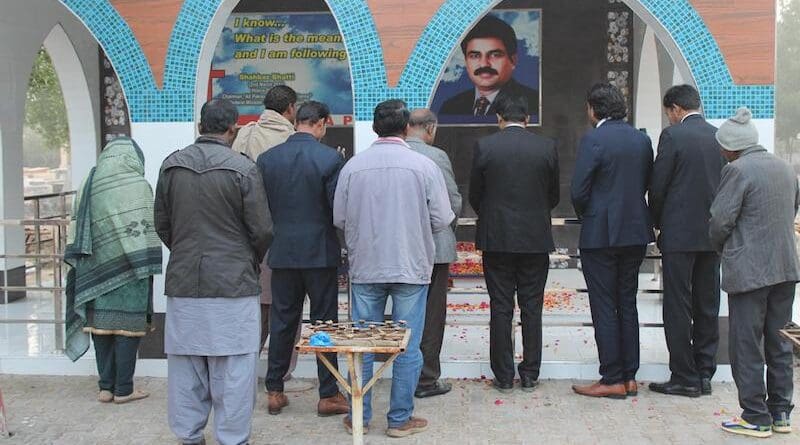Pakistan: Commemorating 13th Anniversary Of Shahbaz Bhatti’s Assassination – OpEd
By Kashif Nawab
Minority rights activists from around the world unite in somber remembrance on the 13th anniversary of the martyrdom of Shahbaz Bhatti, Pakistan’s former Federal Minister of Minorities Affairs and the first Christian parliamentarian in the country’s government. Bhatti, an ardent advocate for a diverse, multicultural, and multireligious society, tragically lost his life on March 2, 2011, when he was attacked and killed by gunmen outside his mother’s home in Islamabad. His murderers labeled him an “infidel Christian,” accusing him of working to overturn the blasphemy law. Despite this devastating loss, Shahbaz Bhatti’s legacy endures as a martyr and a resolute champion of religious freedom.
Shahbaz Bhatti’s tireless efforts led to the release of Asia Bibi, a Christian woman who had been sentenced to death on blasphemy charges under Section 295C of Pakistan’s Penal Code. Asia Bibi, accused of insulting Prophet Muhammad during an argument with a Muslim woman, now resides with her family in Canada.
Minority Rights activist Joseph Jansen stated that despite Shahbaz Bhatti’s sacrifice against the abuse of blasphemy laws, the situation regarding the rights, peace, and justice of minorities remains dire. Vulnerable religious minorities, including Ahmadi, Hindus, and Christians, continue to face unjust imprisonment based on their faith. Furthermore, extrajudicial killings and mob violence persist, fueled by blasphemy allegations. The lack of action by the Pakistani government exacerbates the challenges faced by these communities.
Jansen points to specific cases, including Shaufta Karin, Junaid Hafeez, Zafar Bhatti, and Anwar Kenneth, a Christian man arrested in September 2001. Shockingly, Anwar Kenneth has languished on death row for over 22 years after being accused of committing blasphemy. Jansen also highlights the plight of Zafar Bhatti, another Christian man, who has endured over a decade behind bars, facing the death penalty on baseless accusations of sending blasphemous text messages. These cases underscore the urgent need for reform in Pakistan’s legal system to protect the rights and freedoms of religious minorities.
He urged the upcoming government to address the rampant misuse of blasphemy laws, emphasizing the need for accountability when false accusations are employed to settle personal scores or disputes.
Furthermore, Jansen highlights the alarming presumption of guilt often placed on individuals accused of blasphemy before the trial commences. This presumption hampers the right to a fair legal process and contributes to social prejudice.
Shamauan Alfred, Vice President of Minority Alliance Pakistan, echoes these concerns and expresses anxiety about the repercussions faced by those accused of blasphemy and their advocates. Alfred underscores that false allegations not only put the accused at risk but also stigmatize those extending assistance as infidels and blasphemers.
Alfred calls upon Pakistan to enforce penal code articles that criminalize perjury and false accusations, protect individuals accused of blasphemy, and unconditionally release religious prisoners of conscience.

